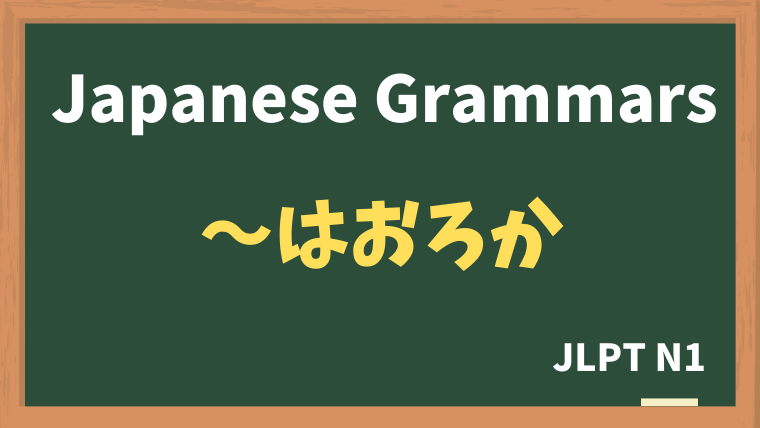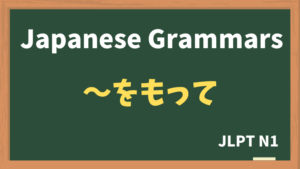
Explanation:〜はおろか
fa-check-circleMeaning
"〜はもちろん・・・も / 〜は当然として・・・も"
Used to emphasize a comparison where the mentioned thing is so extreme or obvious that something else, usually less significant or smaller, is out of the question. It can be translated as "let alone," "not to mention," or "much less" in English. It conveys that the main item is already impossible or difficult, and thus the following item is even more so.
fa-check-circleForm
V(dictionary form)+ のはおろか
N + はおろか
fa-check-circlePoints
- Emphasizing Comparison: "〜はおろか" introduces a more extreme or obvious situation, implying that something even less challenging or smaller is also affected.
- Negative Context: This expression is often used in negative contexts to highlight how difficult or impossible something is, but it can also be used to emphasize overwhelming situations.
- Formal or Written Language: "〜はおろか" is relatively formal and commonly found in written or formal spoken Japanese.
fa-check-circleJLPT Level
N1
fa-check-circleNote
文の後には「〜ない」や「少ない」などマイナスのことが来ます。
Sample sentenes
トムさんは日本へ留学したのに、漢字はおろかひらがなすら書けない。
Tom went to study abroad in Japan, but he can't even write hiragana, let alone kanji.
今、私の国は不景気で、正社員はおろかアルバイトすら見つからない。
Currently, my country is in a recession, and it's impossible to find even a part-time job, let alone a full-time job.
1泊500円で借りた部屋は、エアコンはおろか扇風機もなかった。
The room I rented for 500 yen per night didn't have an air conditioner, let alone a fan.
この辺りにはモールはおろか、コンビニすらない。
In this area, there isn't even a convenience store, let alone a mall.
私は海外旅行はおろか国内旅行さえもほとんどしたことがない。
I have hardly ever traveled domestically, let alone abroad.
足を怪我してしまい、走ることはおろか、歩くことさえできなくなった。
I injured my leg, and I can't even walk, let alone run.
Vocabulary
| Japanese |
English | |
| 正社員 | せいしゃいん | full-time employee |
| 扇風機 | せんぷうき | electric fan |






